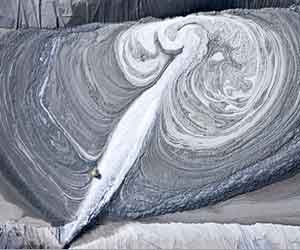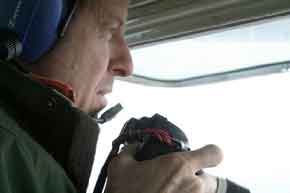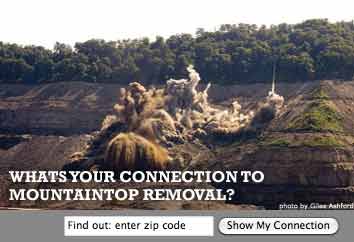Biblio
Elizabeth Larkin, Cortland County Clerk. You can search Land Records at the Cortland County Clerk's Office online and read the full-text of lease documents and see if your neighbors have already signed gas leases.
Instructions
Click "Search Land Records". On the next page, just click "Log In", you do not need a password. On the next page, click "I accept".
On the next page, uncheck "Ignore party type when search for name"; change the dates if you wish, choose "Document Type: Lease" from the drop-down menu.
Next to the field that says "Town", use the pull-down menu to pull down your town and then click the search button at the top right of the page. You can also try variations.
...The fate of bills before Congress related to regulation of hydraulic fracturing is critically important. Congress exempted hydraulic fracturing from regulation under the Safe Drinking Water Act in 2005, but a bill was introduced last summer to federally regulate hydraulic fracturing under the act.
Regulations developed by the EPA under such a bill are unknowable at this time, but they could be expensive. Congress continues to debate the need for broader regulation and has asked the EPA to study the impacts of hydraulic fracturing on drinking water sources.
The industry needs a better, more effective way to advocate and communicate the benefits of fracturing to media, to the public, and to officials whose decisions could impact the future of the technology — and of the nation’s efforts to achieve energy independence.
Claude Cooke. "Industry responds to public take on hydraulic fracturing." Hart Energy E & P. Mar. 1, 2010.
See: Tom Hamburger and Jim Puzzanghera. "Obama a business booster in Chamber of Commerce speech." LA Times. Feb. 7, 2011.
President Obama seeks fresh start with the U.S. Chamber of Commerce, with whom he has had a prickly relationship.
Obama sought to distinguish between inefficient government regulation of the kind he raised in his State of the Union speech — over things like salmon — and a more legitimate government role in areas such as the environment.
"Even as we work to eliminate burdensome regulations, America's businesses have a responsibility to recognize that there are some safeguards and standards that are necessary to protect the American people from harm or exploitation," he said Monday. "Few of us would want to live in a society without the rules that keep our air and water clean … yet when standards like these have been proposed, opponents have often warned that they would be an assault on business and free enterprise."
The audience welcomed Obama with a standing ovation and laughed politely when he joked they "would have gotten off on a better foot if I had brought over a fruitcake when we first moved in."
But there was little hearty applause, and after the president shook a few hands and walked back to the White House, Chamber members were guarded in their reviews of his message.
See: Pollution in Your Community
See: Draft Plan to Study the Potential Impacts of Hydraulic Fracturing on Drinking Water Resources
See: Pew Environment Group (PEG) Factsheet: Industry Opposition to Government Regulation (PDF), October 14, 2010.
Anne C. Mulkern, Greenwire. May 7, 2009. New York Times.
Fearing a push by House Democrats to regulate a controversial form of natural gas production, an industry coalition [Energy in Depth] launched a campaign yesterday arguing that new rules would kill jobs and batter the economy. [See Sourcewatch: Energy in Depth]
The coalition of independent oil and gas companies says a Democratic proposal to allow new oversight over hydraulic fracturing would slash domestic oil and gas production and cost the Treasury $4 billion in lost taxes, royalties, rents and other payments. But environmentalists and an aide to a Democratic lawmaker backing regulation say the claim amounts to "scare tactics."
...The 2005 Energy Policy Act exempted hydraulic fracturing from regulation under the Safe Water Drinking Act. But Rep. Diana DeGette (D-Colo.) proposed a bill last year to repeal that exemption. DeGette is now talking with Energy and Commerce Chairman Henry Waxman (D-Calif.) about either inserting her bill into pending climate legislation or reintroducing the measure on its own.
"We're hoping to move this forward shortly," DeGette spokesman Kristofer Eisenla said. Without federal oversight, he said, there is no way to really track whether the process is safe.
The Day After Tomorrow, (available 2/8/2011) takes readers on a journey to bear witness to the environmental destruction that is currently plaguing our planet; from a forest in West Virginia devastated by mountaintop removal mining, to a region in Florida left in ruins by the phosphate mining industry, J. Henry Fair presents hard evidence that our unchecked consumerism is leading the way in the destruction of our planet, one natural resource at a time.
Overspray of drilling slurry at hydro-fracing drill site. Waste pit of drilling mud (byproduct from mining operations including rock debris, drill bit lubricants, and possibly residual radioactive material.)
The type of waste being produced indicates that exploration is still in progress. The overspray at the top is a violation and a danger to any water bodies downhill.
Photographer J Henry Fair is best known for his Industrial Scars series, in which he researches our world's most egregious environmental disasters and creates images that are simultaneously stunning and horrifying.
Ted Williams. Audubon. Jan/Feb. 2010. "Incite".
"...So deficient is the draft that it drew sharp criticism even from the laconic U.S. Environmental Protection Agency. The EPA says the draft ignores or glosses over: cumulative impacts, threats to the Catskill reservoirs that supply nine million people in and around New York City with untreated drinking water, maintenance of wastewater pits, threats to air quality, health risks of frack-water flowback, impacts on aquatic ecosystems from water withdrawals, and dangers to Important Bird Areas, which sustain all the forest-interior birds threatened by ongoing fragmentation in Pennsylvania."
WHAT YOU CAN DO
To follow Marcellus gas development and learn how to help control it, go to these websites: PennFUTURE, ConserveLand.org, Pinchot Institute for Conservation, and Penn State College of Agricultural Science’s Cooperative Extension.
Opens with a great critique of the word "sustainability".
We followed a trail of yellow liquid draining from the back of the site downstream past a neighboring industrial bakery and into the Edison Glen and Edison Woods residential developments.
There we videotaped a child playing in the poisoned stream who told us it was a good place to hang out and look for frogs and turtles. I subsequently found out that the vacant Superfund lot was a playground for local children, the chemical lagoons were their wading pools, and adults routinely scavenged materials from the site.
Bob [Spiegel] called the Environmental Protection Agency (EPA) and when their response seemed to be limited to posting a few warning signs, he and his friend rented a movie theatre and showed their videotapes to increasingly agitated crowds. “We scared the hell out of everybody,” Spiegel says. The EPA immediately scheduled a public meeting.
--Molly Ivins’ Bushwhacked (Chapter 3)
New Jersey non-profit that among other activities, helps citizens engage in and advocate for the environmental well-being of their communities.
See: How to apply.
Organization web site features a widget that shows how you are connected to mountaintop removal where you live.
You Can End Mountaintop Removal.
Mountaintop removal is a radical form of coal mining in which entire mountains are literally blown up -- and it is happening here in America on a scale that is almost unimaginable.
Please take a moment to learn more about mountaintop removal mining -- and then join us by taking action to stop it.
See: Welcome to Rogers Neighborhood | House Passes Dangerous Budget in the Dark of Night
See: GOP Budget Amendments Would Destroy Health, Economy, Planet.
See: Michael Cusack O'Connell. (film). Mountaintop Removal.
Visit Toxics Targeting for more information.
Ignitable Drinking Water From a Well in Candor, New York, Located Above the Marcellus Shale Formation (Spill #: 0811696)
See Walter Hang's letter to NYS DEC Commissioner Pete Grannis, 4/2/10.

















